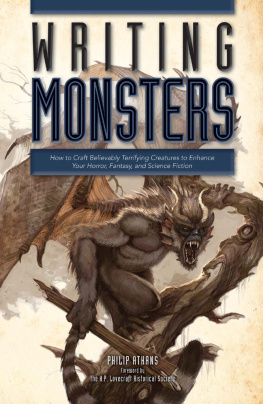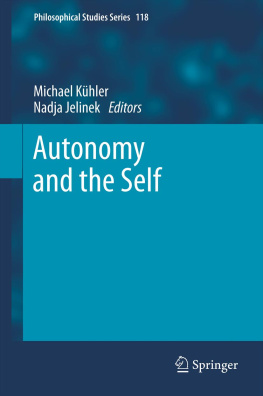
Translated by Martin Chalmers
The translator wishes to thank Peter " Bar " Gattinger, Esther Kinsky, and Alex Schmidt for making this a better translation than it would otherwise have been.
M.C.
Today country policeman Kurt Janisch is once again looking at the photo on which his father, Police-Colonel Janisch, saluted the King, thirty years earlier. Look, his father is still standing there, evidently forced to draw back just an inch from his own enthusiastic motion of standing to attention, but why is there nothing to check him?-there's something soft, indecisive about his shoulders, which then seems to push him forward again. Perhaps it was no more than an involuntary bow before the monarch, more or less as an encore to the frequendy rehearsed salute. There's nothing at all subordinate about the son anymore, standing there in front of the cabinet in his striped track-suit harnessing his body by slowly warming it up before going running. His father had still borne his subordination, with drooping shoulders but capable hands, down the dusty country roads and to smashed up car wrecks. Perhaps the son is more versatile and can also give orders, the way he looks makes me curious: a somewhat angular face, across which the thoughts, which in all people like to spread out, merely seem to shyly slip through. Well. But the will would be there now, what is he going to use it for? The boat has heaved to, the traffic lights are switched on and are permanently at green, the fine distinction between him and other people is growing.
The country policeman is meanwhile completely dominated by a kind of greed, which came unnoticed, but was finally noticeable even to the neighbors (astonishment at plant progeny in the front garden, no one knows where they come from, he can't have bought them!). Occasionally someone looks up the land register, to see what the country policeman tried to camouflage with the book of life. Now he has moored, he has spied out his targets. The oars have been taken in, the line, the nets cast. Perhaps originally there was room for something else, beautiful, decent in the country policeman? A good-looking and seemingly light-hearted man, the country policeman, just the sort we women like. Something to work with. It's not just to keep world peace that men dish out a load of lies to women, to make them dependent, while women indeed have something better to offer, all their thinking and feeling and a lot of things made of brightly colored wools. It's understandable, of course, that we, especially those of us with the older sex organs, who haven't seen much through the little escape hatches of the body, must remain strangers to ourselves nevertheless! We love-hungry ladies, unfortunately we don't know this country policeman (the flower of the country road goes down right in front of his marked car and we're not there) personally. Not to worry, I'll take care of that: So as not to jeopardise your little bit of lover's bliss which depends on deception, like every other kind, I'd better take over the telling of the story myself now. Don't interrupt! At the moment in order to prevent war between the bodies I can't even exactly tell their functions. Not even this determination in the man, which I already sense, properly knows its goal yet, but I know it's been looking for a long time and will find it in what corrupts most easily, the human body. Whoever knows himself will immediately want a bit of the other, but then the others immediately want it, too.
Incidentally they're both dead now, the king and his guide and guard, the father of the country policeman, who that day proudly escorted the prancing black coaches from Graz main station (the state visit came from Vienna by rail over the Semmering Pass) across the foreordained Mur Bridge and then casually flung them into the armory, where already centuries ago rich people had handed over their metal clothes for safekeeping. How can one hate life, the son is just thinking, who was left over from his father's table, and turns his face to the mountain wind. High up there, through the attic window of his house, a small trough for animals can be seen, into which soft muzzles dig, whose owners, male and female, will later be shot, many of them, except for the mothers, which at this time of year are still protected by their motherhood. Others are alone. Even animals, often wrongly, seek out the nearness of the other, and the country policeman also likes to be sociable in the public house and does small deals on the side (with watches and jewelry preferably in the county town! Where not so many people know one's face). Therefore many people regard him as a good mate, who can get you second hand building tools along with building materials more cheaply. Yet if he honestly travels around inside himself, he has to conclude it's so dark in there, one doesn't even know exactly where one is. No wonder that again and again, at intervals of about a month, he has to light himself up a bit through belligerent but not very purposeful indiscriminate drinking. His colleagues don't see this darkness in their chum, perhaps they suspect it sometimes, and they don't want to believe their wives, who sense something like that and are strongly attracted by it until they end up in a heap on heat. Whoever only learns about everything from reading should please do so now.
Am I mistaken, or was something found here years ago that was never cleared up? What am I forced to look at, when I open this old newspaper? A pale face glimmers there beneath the lowest fir twigs, like a little moon, the face has something to tell, but can no longer tell anyone, because a heavy hand was laid on the throat, clothes were pulled down, the features of the face convulsed; tracks which might good-naturedly have given the green light, if only they'd been asked, arched up, broke, as the roots of the body, the legs, were tugged and shaken, until enough was enough, until the crumbly earth was loosened. So, now where's the bag with the humor, which we still had with us when we gave information to the police earlier? Where is the humus for the potting? Jeans into which absolutely nothing seems to fit anymore, come apart at the seams, a skirt flies up, falls down to earth again from heaven, reluctantly, because not cut out for it, becomes a sack, into which goes the woman's face. Well, and now where will we put the stamp, so that this one, originally with such varied interests, will in future only long for sleep, because she has got to know and learned to reject fundamentally, down to the last root fibers of being, the opposite of sleep, extreme activity?
It sometimes makes the country policeman nervous that the villagers don't really know him at all, although the camouflage he originally strove for was kindness and friendliness after all, and then he goes on drinking far too long, alone if need be. The ground beneath and between his feet has already been caressed by women until it got too hot for him, women on whose grounds he has cast an eye. Such a forceful, big man, who is capable of unleashing almost any kind of event. A chosen woman, who previously had been lying a little too long in the shop window, until too many had seen her and not taken her away, meanwhile knows only the square yard in front of the telephone, and it, too, has by now been burnt right through from all the running back and forth, and then the way from the door and the nice bed, which, together with new satin bed linen has been specially bought for two in the county town. What does one need the rest for?
It's not good to hate, but only if you tell me who, can I really say, if it's good or bad. It gives some people the energy they need, like a Mars bar, which comes straight from the god of war and plunges into a human figure, until the latter has melted away. The pilot can no longer save himself even with his ejector seat. But with hating one can grow nice and old. It passes the time, which in any case runs off as soon as it sees us. Of course, everyone thinks they must be among friends, if they happen to run across someone outwardly tranquil, who holds public office and takes it out of women, they're always really finished afterwards. So why hate, except in a war, which is being of once again at present, which makes everything inside us, and that's a great deal, depending on the anger of the other side, shoot out and could only be dammed up once more by the utmost love of life and a home-sewn iron curtain. But we don't have anything like that in stock in our store, we've only got two very soft down duvets there, in case someone happens to drop by. Instead we have reciprocal campaigns on offer, until the field between us is trampled down. Now it's been softened up as well by the rain and our desires for our neighbor's property. It's no longer good even as a field of slaughter. But the neighbor has to give way anyway, we've threatened to get the police onto him, if he doesn't take down the wall with the ugly fence on top, because it's spoiling our view. Frankness, diligence, and cheerfulness, which the country policeman likes to feign for others, is intended to give rise to the love of others towards him, but there is little of this commodity in stock. The flames are already shooting up in the Game Boy, in which our own life is simulated, but what frightful face is looking back at us from it? No face looks back from us at the country policeman, who is fast asleep with sweet dreams of power and greatness, because, wrongly, this man doesn't interest us yet. That could soon change once he has got hold of the building plan of our circuits and our little house and the apartments we own. I hope I'll manage it so that you too experience one of his happy moments! But I doubt it, I already don't like him. It's a frequent reproach, that I stand around looking stupid and drop my characters before I even have them, because to be honest I pretty quickly find them dull. Perhaps at this very moment, as the servant of the state is bending over someone else's building plan, which he has stolen, perhaps now he is happier than we are? And we're supposed to be interested in that?
Next page










